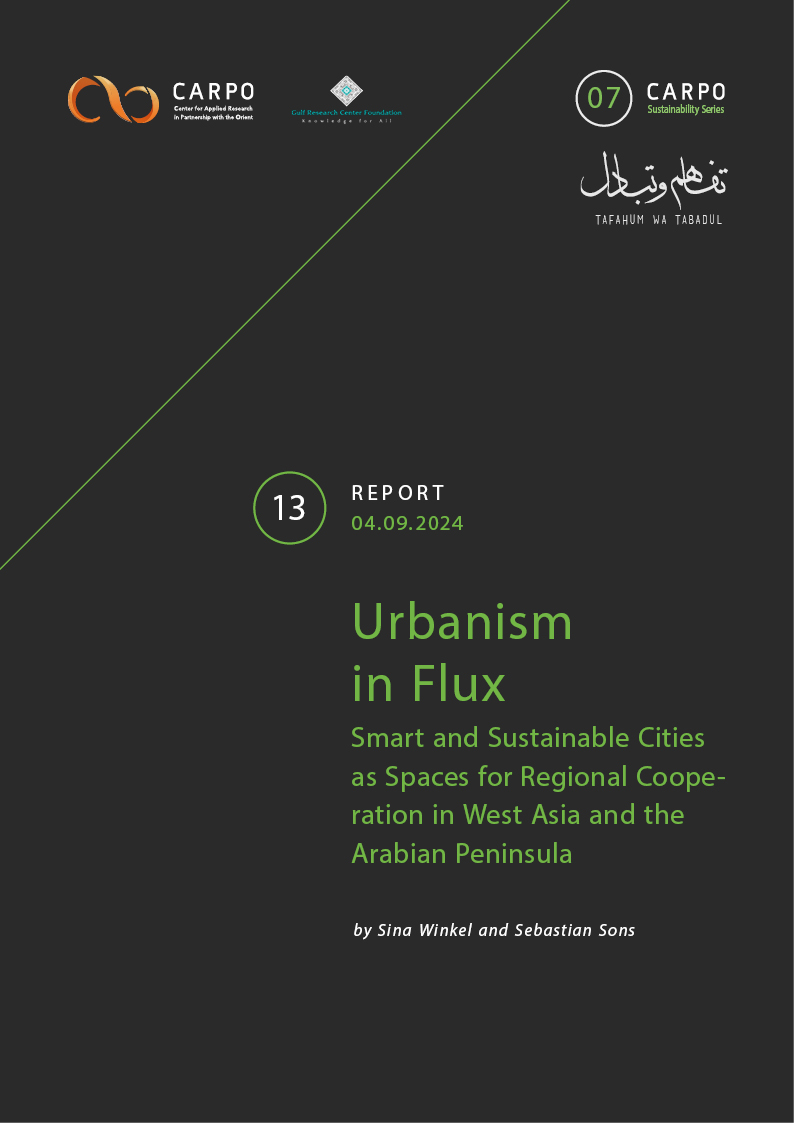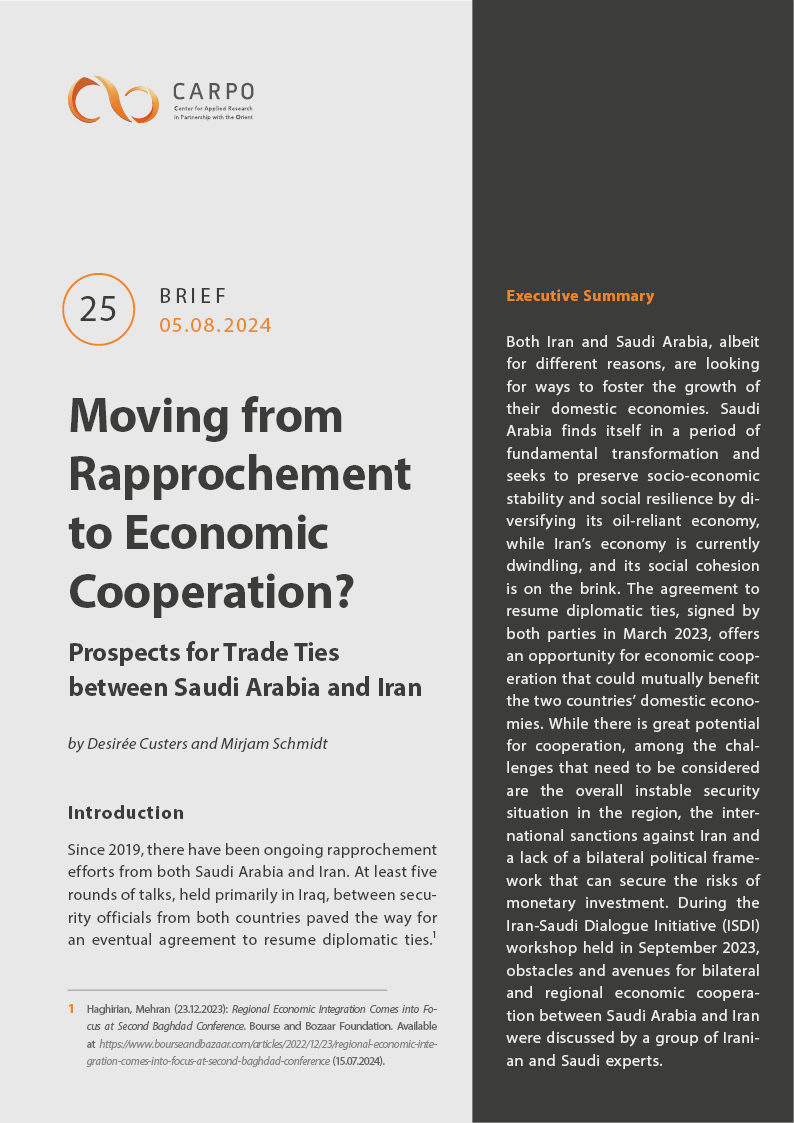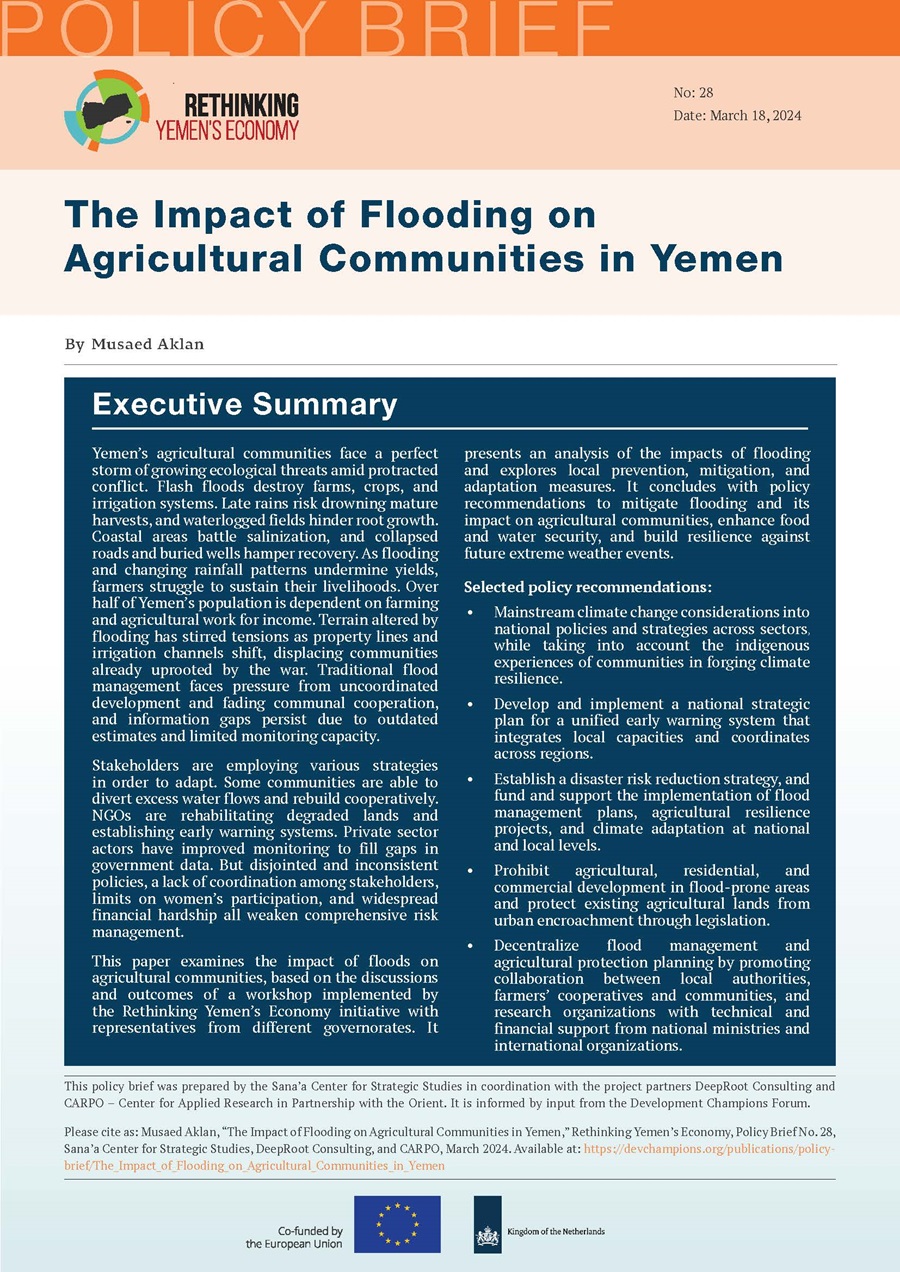
Enhancing the Role of Microfinance Banks for Sustainable Impact in Yemen
Yemen’s microfinance sector is undergoing a radical transformation. Despite initial success in empowering small businesses, the ongoing conflict has exposed deep vulnerabilities. Competition between the fractured central banks has driven a surge in microfinance bank (MFB) licenses. While this promises to expand financial inclusion, it raises serious concerns about long-term sustainability and financial stability. To ensure a sustainable future for the sector, a collaborative effort is needed from the CBY, MFBs, and international donors. This RYE Policy Brief brings forward practical recommendations to this effect.
Download the Policy Brief in English or Arabic
Allgemein, Other, Rethinking Yemen's Economy, RYE Publications


